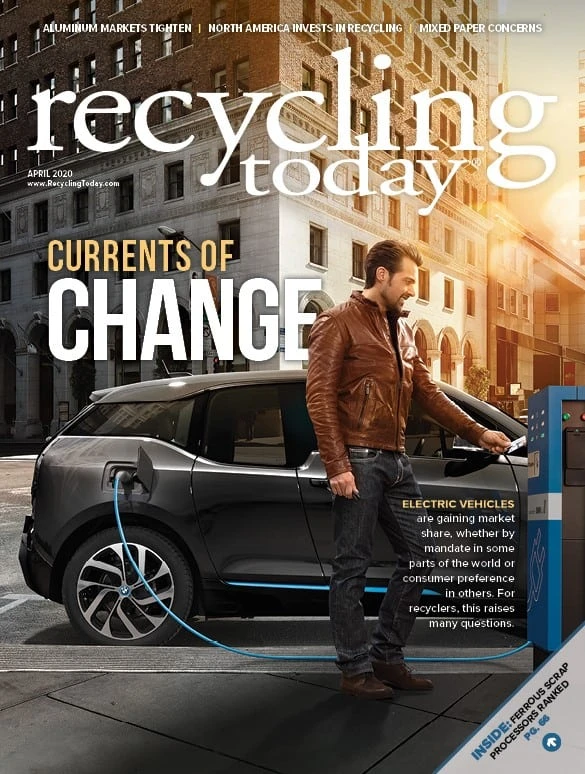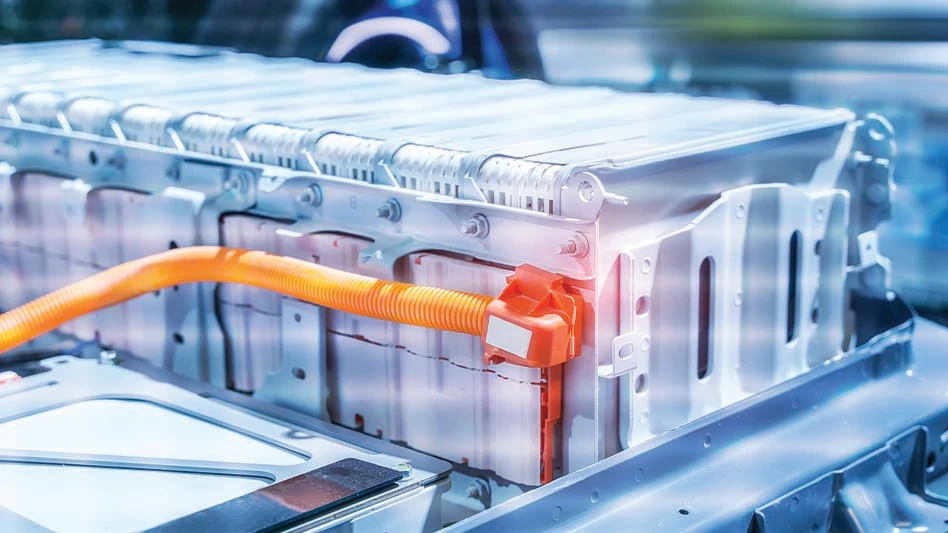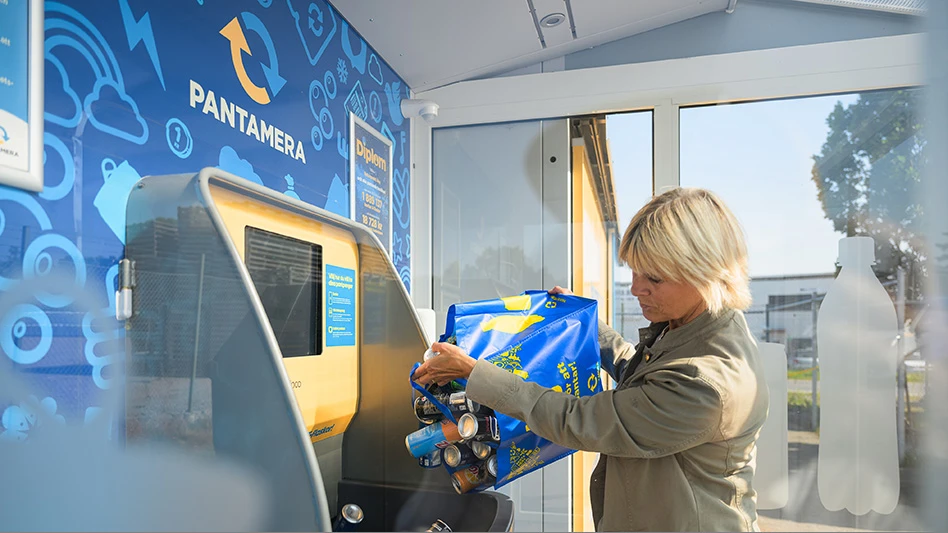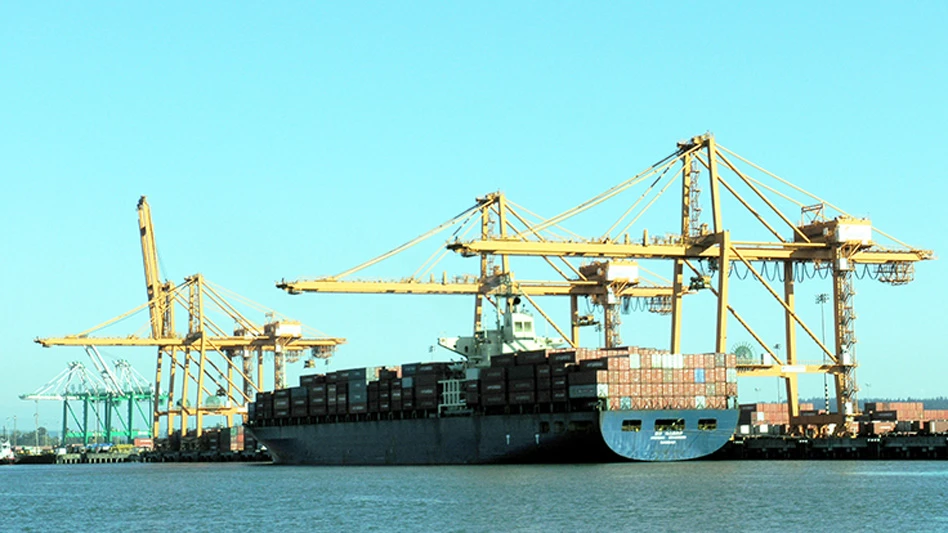
Marc Ehrlich says his father, Michel Ehrlich, started his recycling and trading firm in 1965, when the hostilities and horrors of World War II were still in the minds of many businesspeople throughout Europe. Although he was based in historically neutral Switzerland, Michel was tasked with building a business while reaching out to people with a mosaic of linguistic backgrounds and national identities.
Several decades later, Marc; his sister, Sandra Sheinman; and the 320 associates of Lausanne, Switzerland-based Vipa Group are following through on Michel’s vision by connecting people in multilingual Switzerland, in the rest of Europe and beyond, including into Asia, Africa and the Americas.
Vipa now operates or is affiliated with dozens of trading offices spanning the globe on all six inhabited continents. In addition to the trading network, the company stays tied to its Swiss roots by operating six recycling plants that focus on recovered fiber collection and processing.
Building a foundation
Marc, CEO of the Vipa Group, says in the mid-1960s, his father “saw the opportunity to source recovered paper in Germany, the first European country to establish a strong collection system, and to sell the material into Italy.”
In today’s largely unified Europe, that may not seem like a remarkable idea. But, Marc says, “One must understand that this link was not so obvious in the years following World War II.”
“We can really say we are a multicultural company.” – Marc Ehrlich, CEO, Vipa Group
The endeavor established the foundation for how Vipa Group operates today. Sourcing recovered fiber remains a key endeavor. In Switzerland, Vipa Group’s operating arm Retripa consists of six plants that collect, sort and bale recovered fiber drawn from what Marc calls “the French-speaking side of Switzerland.”
Because of Switzerland’s land-locked location in the center of Europe, that material largely stays on the European continent, he says.
The Vipa name is more commonly attached to the company’s global trading activities. This multinational network of offices and affiliated independent agents builds upon Michel’s original vision of crossing national divides to bring people together to pursue business opportunities.
“We work with more than 100 countries at the moment—we can really say we are a multicultural company,” Marc says. He cites the company’s strong presence in India as one example. In that nation, “We can see per custom statistics that we are handling more than 32 percent of the European-to-India [recovered fiber] trade.”
The separate activities of Retripa in Switzerland and Vipa well beyond it create a dual identity for the Ehrlich family business, each with a different geographic perspective.
Intensely local, broadly global
Switzerland has long leveraged its geopolitical neutrality to establish itself as a multilingual hub for global finance and trading. The nation also has long had to practice internal diplomacy to ensure that its four major ethnolinguistic groups are comfortable with their own access to elected power and business opportunities.
The two circumstances help explain why Marc describes Retripa as “a leader in recycling activities on the French-speaking side of Switzerland.” While Switzerland’s German, Italian and Romansh-speaking areas provide plenty of recycling industry opportunity, Marc says it would be “a big jump” for Retripa to make inroads into those regions.
Instead, Retripa has focused on being a market-share leader in the eastern quadrant of Switzerland, where the 23 percent of Swiss citizens who speak French largely reside.
Retripa’s six plants are all equipped with balers, and some of them have processing lines deploying optical and ballistic sorting machinery and manual sorters.
Recovered fiber has long been Retripa’s focus, Marc says, but the plants will accept materials important to its customers, “depending on opportunities.” The facilities may accept plastic or metal, and Retripa makes a wood waste-to-energy product at one plant.
The material passing through the Retripa plants almost entirely stays in Europe, Marc says, as land-locked Switzerland has no seaports, and logistics in the Alps region “are very expensive” overall.
The local focus of Retripa is in sharp contrast to the global activities of the Vipa trading network. That network connects roughly one-quarter of Europe’s exported scrap paper with the rest of the world.
“Vipa Group is the leader of exporting recovered paper out of Europe,” Marc says. “The whole of the European continent exports about 10 million metric tons of recovered paper per year, of which Vipa is handling 2.5 million metric tons, for 25 percent market share.”
He says in 2019 this entailed Vipa handling “about 100,000 40-foot containers” for export. “This is done and organized by our several European offices in London; Rotterdam, the Netherlands; Thessaloniki, Greece; and St. Petersburg, Russia; besides the head office in Switzerland.”
He credits Vipa’s attention to technology as one factor in its success. Being a “pioneer in the use of new technologies [was] a requisite when the volumes started to increase, and we have to follow up with documentation.”
In Europe, where paper mills want bale moisture level assessments ahead of time, Ehrlich says Vipa’s own inspectors can now “help us to ascertain the quality of the material we are loading [and] can communicate directly with our IT (information technology) system.”

However, Vipa’s wide network primarily has been successful because, at all nodes, it continues to connect people with other people, Marc says. “You can implement all the digitalization you want and have the best commercial strategy and equipment, but the only possible philosophy in business is based on the trust the people have in you. I try to have this value shared in all the Vipa teams, and this should always reflect in the way we interact with our partners.”
Marc continues, “We stick everywhere to the same rules: We want to work directly with the packing plants so that the quality can be guaranteed; we work directly with the paper mills so that we understand accurately their [production processes] and can proactively make new suggestions; and we also work directly with shipping lines, which often consider us as a VIP customer.”
Connecting across borders brings Vipa back to the methods Michel established and also to the multilingual nature of Switzerland. Although French is the language Marc speaks at home, and Retripa operates in Switzerland’s French-speaking eastern quadrant, he says, “Believe it or not, Ehrlich means ‘honest’ in German. Not a bad name if you want to act in the right way!”
Marc’s sister, Sheinman, manages the London office and United Kingdom operations. He says he and his sister “are still today the sole shareholders of the company.”
Sponsored Content
Labor that Works
With 25 years of experience, Leadpoint delivers cost-effective workforce solutions tailored to your needs. We handle the recruiting, hiring, training, and onboarding to deliver stable, productive, and safety-focused teams. Our commitment to safety and quality ensures peace of mind with a reliable workforce that helps you achieve your goals.
A future of opportunities
As a provider of export sales services to Europe’s collectors and processors, Marc says Vipa “welcomes very much the strong improvement in quality that we can see in most loading places.”
Recovered fiber remains at the heart of Vipa’s trading activities, but “we try to give full service to our partners’ packing plants in buying the whole range of products,” he says. “As a consequence, we handle more OCC (old corrugated containers) or No. 7 old newspapers (ONP) than anything else. However, we are always happy to look into sorted office paper, printers’ grades or even aluminum cans.”
Plastic packaging also flows into Europe’s sorting and recycling plants, but Marc acknowledges having ambivalent feelings about this material.
“Providing full service means we have a small plastic team,” he comments, but adds, “I’m not the best friend of plastic myself.” Globally, far more discarded plastic is ending up in landfills, incinerators or the world’s rivers, lakes and oceans rather than being recycled, he says.
The publicity surrounding discarded plastic in the ocean has been joined by the governments of China and other nations referring to all scrap materials—even clean, valuable ones—as “waste.” Marc says, “Now, the public can read in all the mainstream newspapers that our industry is shipping rubbish to Asia. With these false affirmations, we are destroying the trust.”
He continues, “At the same time, people read that whatever they do at home to recycle, the material will go to landfill as it has no value anymore. These messages are unfortunately very bad and portray us as part of a problem rather than the key to the circular economy. I find our industry not fighting enough for its image.”
It is a battle worth fighting, Marc says, and if it can be won it will create even more opportunities for Vipa and the rest of the world’s recycling companies.
Not far from Europe, Africa’s economy and ability to generate and consume recyclables are growing, he says. Another place where Vipa Group can make inroads is North America, where it opened trading offices in California and Rhode Island in 2019.
“Being leaders in the European market with 25 percent market share, we strongly believe we also can be a link between the North American continent and Asia,” Marc says.
He says enthusiastically about that potential, “The United States is exporting double the quantity of recovered paper compared to Europe, so our potential for growth is enormous.”
Get curated news on YOUR industry.
Enter your email to receive our newsletters.

Explore the April 2020 Issue
Check out more from this issue and find your next story to read.
Latest from Recycling Today
- Nucor expects slimmer profits in early 2025
- CP Group announces new senior vice president
- APR publishes Design Guide in French
- AmSty recorded first sales of PolyRenew Styrene in 2024
- PRE says EU’s plastic recycling industry at a breaking point
- Call2Recycle Canada, Staples Professional expand partnership
- Circular Services breaks ground on north Texas MRF
- Tariff uncertainty results in choppy nonferrous scrap flows







